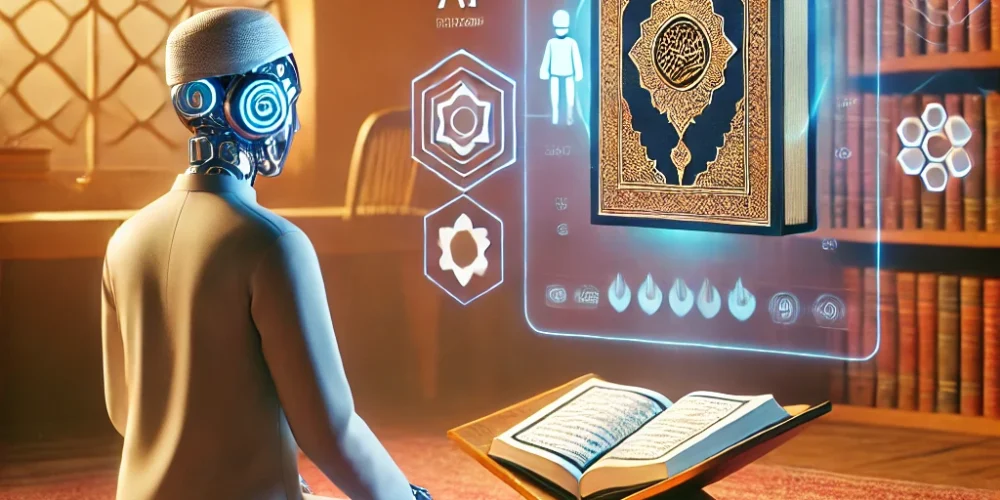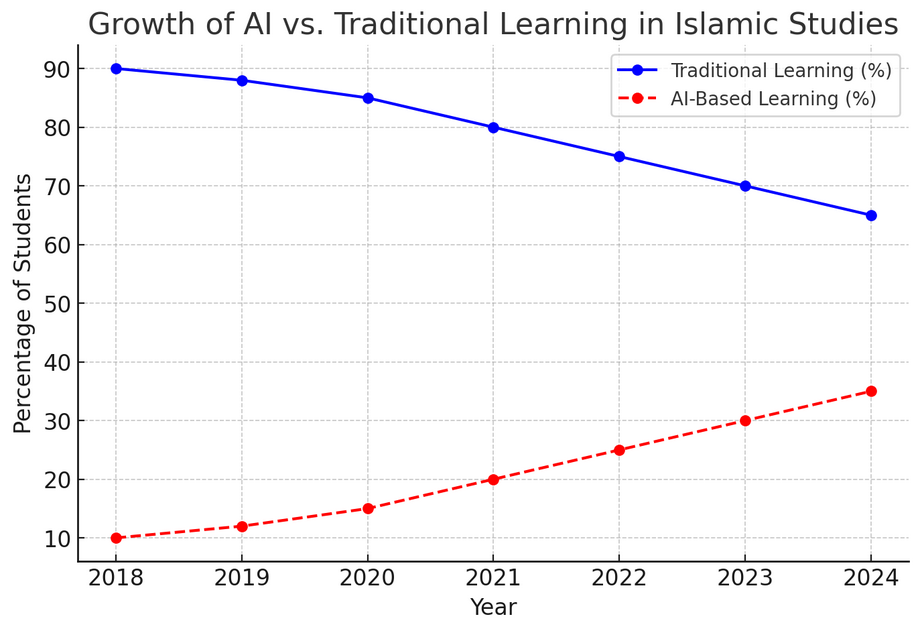AI vs. Traditional Islamic Studies: Which Path Should We Follow?

Islamic education has always been deeply rooted in tradition, with scholars passing down knowledge through generations. But with the rise of Artificial Intelligence (AI) and digital learning, a debate has emerged: Should we embrace AI in Islamic studies or continue with traditional methods?
The Role of Traditional Islamic Learning
Traditional methods of Islamic education have stood the test of time. They offer:
- Personalized mentorship from scholars and teachers.
- Direct engagement with classical texts.
- Spiritual and ethical development beyond just knowledge acquisition.
- A communal learning environment that fosters deep connections

However, there are challenges such as limited access, rigid schedules, and the difficulty of reaching a global audience.
The Rise of AI in Islamic Education
AI is revolutionizing many fields, including Islamic studies. Some benefits include:
- 24/7 Access to Learning: AI-powered platforms allow students to learn at their convenience.
- Personalized Learning Paths: AI adapts to students’ pace and understanding levels.
- Interactive Engagement: AI-driven tools like chatbots can answer questions instantly.
- Wider Reach: More students worldwide can now access Islamic knowledge.
A Data-Backed Perspective
A report by Statista shows a 30% increase in online Islamic education enrollments over the past five years. Below is a graphical representation of how AI has impacted Islamic learning:

Striking the Balance: The Best of Both Worlds

For a deeper understanding of AI’s role in education, check out our Islamic Online Learning Guide. Also, explore this insightful research on AI in Education.
Why MeeM Online Academy?
At MeeM Online Academy, we integrate AI-driven tools with traditional teaching methodologies, ensuring the best Islamic learning experience. With expert scholars and AI-powered resources, we offer personalized Quran learning, Tafseer classes, and more.
Join MeeM Online Academy today and experience the future of Islamic education!


0 Comments